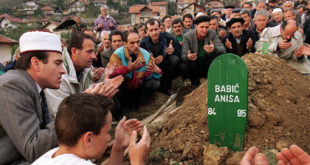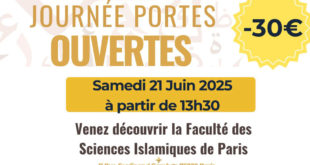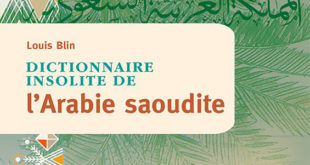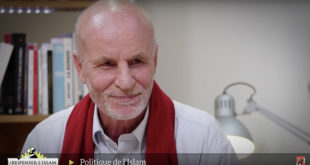by Karim IFRAK
« Civilized dialogue aims to strive to understand the other as well as possible, to deepen the common denominators, to overcome the obstacles to coexistence, to overcome the problems, because this encourages us to recognize the other as well as his right to exist, to recognize his legitimate rights”.
Mecca Charter, No.6.
A “royal” revolution
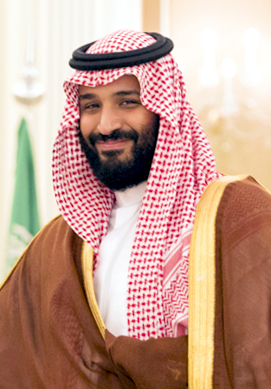
Mohammed bin Salman, the current Crown Prince of Saudi Arabia, has proven on many occasions that he is a most unique person. Representative of a young generation determined to move the lines, he led several political, economic and social reforms which earned him, according to international observers, the title of « new strong man of the Middle East » .
Unlike the country’s elite who usually go to study in the United States or the United Kingdom, this young prince was trained in Riyadh (capital of the Kingdom). An « opportunity » which helped him to become fully aware of the realities of his country and which allowed him to know, precisely, where he should start. Thus, in just a few years, he managed to revolutionize his country, from inside and out, by pushing it to open up to the world, to turn away from the past and to look to the future. In short, to prevent it from a programmed implosion, harmful for the region and for the world. A determination that forced him to clash head-on with the Saudi nomenklatura and bend the knee to the traditional religious system, but both extremely powerful.
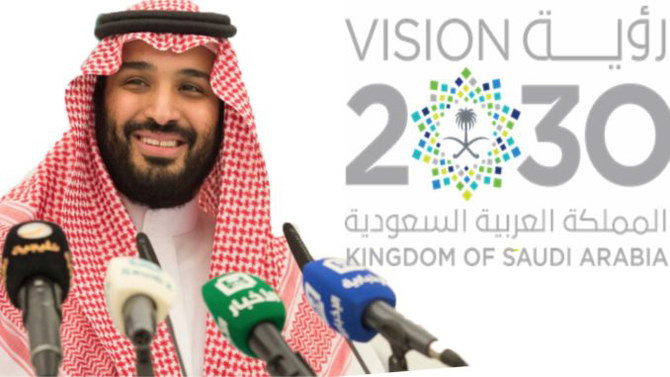
To the attention of the political class, the speech was simple but effective : money is the sinews of war. In more explicit terms, priority will be given to the revitalization of the national economy, in particular through the establishment of an economic development program without commonality. « Vision 2030 », code name for an ambitious project which has as its final objective the liberation of the Kingdom of Saud from « all oil ». For the attention of the religious class, Mohammed ben Salman affirmed, loud and clear, his desire to put an end to the influence of conservative circles which he unceremoniously invited to change sides, convinced that theirs is stricken with obsolescence. . In this vein, he declared, on the sidelines of the International Future Investment Initiative conference, held in October 2017, that Saudi Arabia must return to a moderate Islam, tolerant and open to the world, but also to all other religions. . Bluntly, he declared that he would not let his country spend the next 30 years of its existence adjusting to extremist ideologies, but rather he would do whatever was necessary to put an end to them. And as a token of this openness, he opened, to the chagrin of the backsliders, the door wide for Saudi women so that they could participate in social, economic, intellectual, cultural and even political life. From now on, all will be accessible to them; start and run their own businesses, hold military positions, and even « drive their own cars ». Fundamental rights that were previously completely inaccessible.
The World Islamic League changes course
Another pledge of this great reform, the turn of almost 360 ° operated within the powerful World Islamic League. Considered as the « religious arm » of the Kingdom, formerly invested in the dissemination of a particular vision of Islam, it now wants to be the spokesperson for a tolerant, enlightened and inclusive Islam. A powerful tool that the strongman of the new Saudi Arabia entrusted to one of the men in whom he fully trusted: Mohammad Al-Issa.
A man of experience with many talents, Mohammad Al-Issa has since worked to make inter-religious and intercultural dialogue, the fight against extremism and the promotion of peace, the top priority of the new L.I.M. A new orientation assumed without joke by this new secretary general who affirmed, during an interview with Pope Francis, that “Islam calls for respect, in particular, respect by Muslims for the laws and institutions of countries and territories where they live ”.
A great first followed quickly by others: the signing of « The Charter of Mecca ». A worldwide meeting that caused a stir, made possible thanks to 1,200 Muslim scholars, all persuasions, from 139 countries around the world. An unprecedented charter which put women in the spotlight by calling for respect for all of her rights, whether in religious, scientific, political, social or other fields, without any discrimination. A charter which defines the rights and duties of Muslims as well as the attitude to have towards non-Muslims, believers and non-believers included. And it is in this vein that Mohammed al-Issa signed, in New York, with David Harris, chairman of the American Jewish Committee, a Memorandum of Friendship and Cooperation. A signature ended with a trip to Auschwitz where the two men went to commemorate, together, the liberation of the Nazi camps. Never seen.
Formerly an instrument for promoting a narrow and egocentric vision of Islam, the L.I.M, now placed under the authority of this new S.G., aims to be a point of confluence, a space for dialogue, a source of appeasement. Humanist values that drive her to devote herself, among other things, to humanitarian aid, without religious conditions, to the promotion of peace everywhere in the world and to the fight against all forms of extremism and violence.
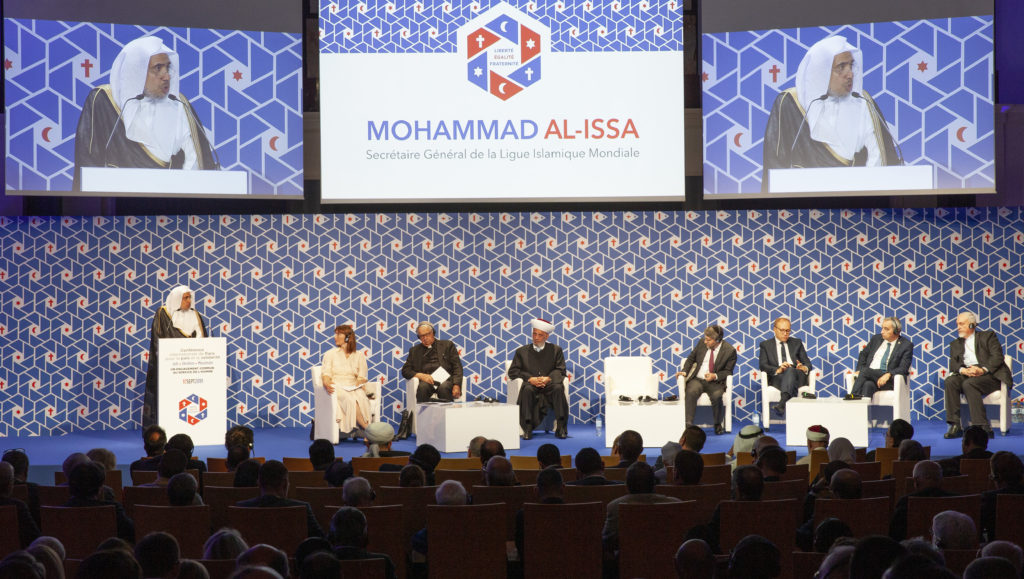
And it is in accordance with this beautiful ideal that she organized, in Paris, an “International Conference for Peace and Solidarity” to which many national and international personalities were invited, in particular, Haïm Korsia, Chief Rabbi of France, François Clavairoly, President of the Protestant Federation of France, Mgr Gérard Defois, Archbishop Emeritus of Lille, and Mgr Emmanuel Adamakis, Greek Orthodox Metropolitan of France. A high-level meeting organized according to the rules of the art, but which, to the regret of its sponsor, and this due to certain local sensitivities, was unable to achieve the expected results.
However, despite all these efforts, which completely break with the past, the fact remains that the LIM remains maligned, victim of its bad reputation which sticks to its skin: that of an organ of backward-looking and retrograde propaganda. A heavy liability that is not without asking questions : will the new LIM succeed in winning its big bet, that of changing the image we have of it, in particular, calling for more tolerance? and inclusiveness and to combat all forms of extremism and violence?
Without a doubt, the future will tell us with its words, but above all with its evidence. However, with Mohammad Al-Issa at the head of the new LIM, everything seems to indicate that things are moving in the right direction… for the moment.
Karim Ifrak
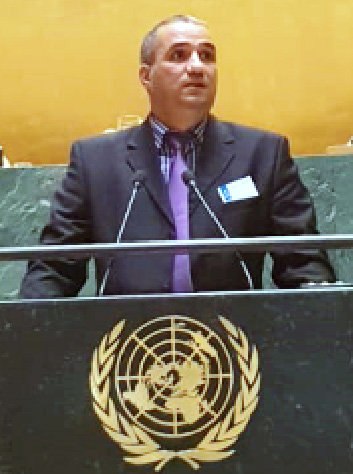
Doctor of the Practical School of Higher Studies (EPHE), Karim IFRAK is an Islamologist. A researcher at the CNRS, he is a specialist in the history of texts and contemporary ideologies. With several written contributions to his credit, he is the author of: « Should we reform Islam? Some keys to reading ”, ed. Bouraq, Paris, 2017. “Liberty, Equality, Fraternity: Spiritual Values, Republican values”, (prefaced by the Prime Minister Mr. Édouard PHILIPPE), Olivétan, Lyon, 2018. “Ibn Achour, his life, his work and his thought », Published by the IMA, 2020.
 Musulmans en France L'actualité des musulmanes et musulmans en France
Musulmans en France L'actualité des musulmanes et musulmans en France
